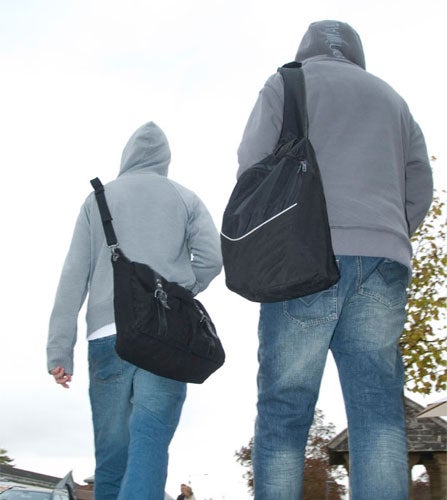Lengthen school day to help latchkey kids, charity urges

The school day should be lengthened to help "latchkey kids" who are left alone after school while parents work, a study on deprivation recommends.
Thousands of older children are left alone between 3pm and 7pm with nothing to do and are at risk of turning to delinquency, the report by the charity Action for Children argues.
The Government's attempt to solve the problem with after-school clubs has failed because many older children simply refuse to attend the voluntary activities on offer. The report, Deprivation and Risk, complains that compulsory school hours have barely changed since the 19th century, when children were often forced to do paid work after lessons.
It concludes: "Despite the advent of extended schools, many children (particularly older children) spend between 3pm and 7pm with no parent in the home and nothing to do. "It is time to consider lengthening the statutory school day, which would allow for non-academic lessons such as sport, drama or vocationally related subjects, and has the potential to benefit, in particular, those from deprived backgrounds or at risk of delinquency."
While most parents can now find childcare for younger children, there is still a chronic shortage of childcare places for older children.
Research has found that children can be particularly at risk of going off the rails during the early years of secondary school. As 80 per cent of mothers of 11- to 14-year-olds are in work, parents often either leave their children home alone or patch together informal and often unsatisfactory arrangements with family and friends.
Three in four parents believe that children in that age group are too young to look after themselves, but childcare places are available for only one in every 200 11- to 14-year-olds.
Anne Longfield, chief executive of the children's charity 4Children, which has campaigned on the issue of latchkey kids since it was founded in 1979, supported the call for a longer school day but warned that it must not mean children doing formal lessons "from dawn until dusk".
She said: "The latchkey time can be a very lonely time for children. There are all kinds of dangers about being on your own at home, but there are also dangers they encounter before they get home. A lot of teenagers fall into antisocial behaviour because they are bored, and the peak time for antisocial behaviour is after school.
"A lot of parents go down this route because it is the cheaper option. While they might not like leaving their children at home or with family or friends, it is something that a lot of parents feel forced to do."
The report also blames the old boys' network for the lack of social mobility in Britain. Inheritance tax should be raised to stop wealthy families passing their privileges on to their children, it argues. The report warns that urgent action must be taken to tackle inequality and help the 1.4 million children living in severe poverty.
It calls on all political parties to make a break with the past and stop attempts to help the most disadvantaged children by simply boosting their families' income, arguing that this is doomed to failure. The report warns that recent years have seen new health and social problems emerge among Britain's young people: a rapid rise in mental health problems in children, a rise in teenage pregnancies and sexually transmitted diseases, binge-drinking among children in their early teens, and the epidemic of childhood obesity.
The report says Britain is becoming increasingly preoccupied with child protection, arguing that it would be better to invest in interventions which would stop child abuse and neglect arising in the first place.
Policymakers in Britain should stop looking to countries with a strong focus on child protection – such as the US, Canada, Australia and New Zealand – because these nations all have higher pro rata child maltreatment death rates than the UK. Instead, we should look to countries such as Spain, the Netherlands and Scandinavia, where death rates from child maltreatment are lower and where the focus is on preventive action to support families at risk.
Join our commenting forum
Join thought-provoking conversations, follow other Independent readers and see their replies
Comments
Bookmark popover
Removed from bookmarks